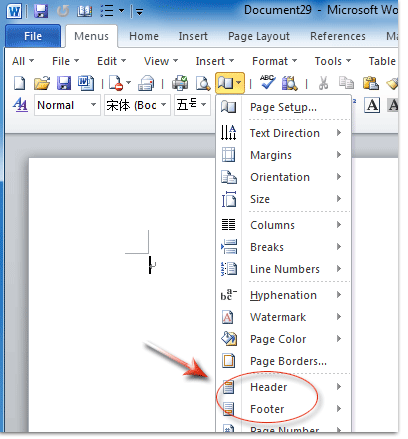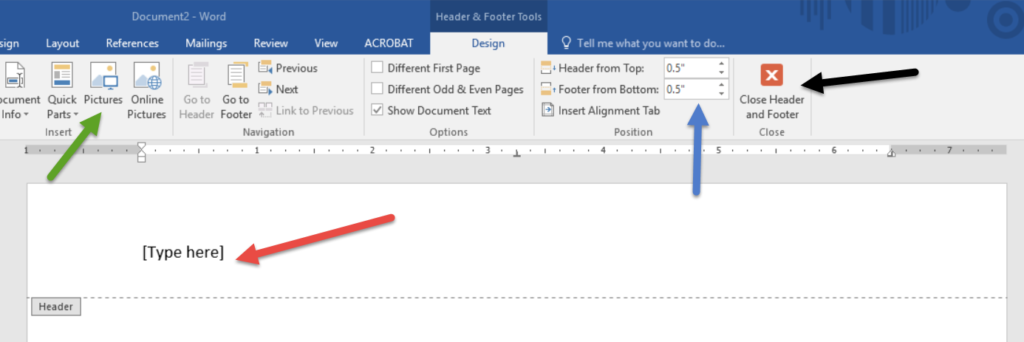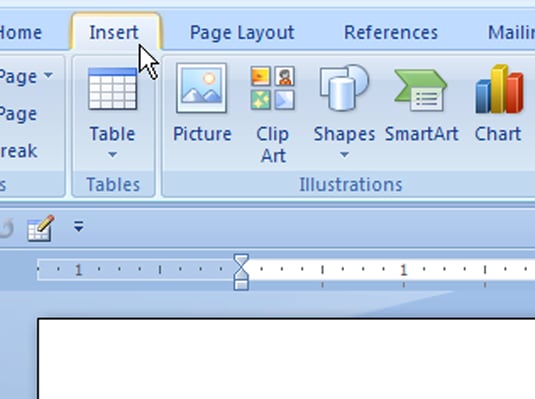
When you add one header or footer, such as a page number or date, it appears on every page. The header and footer workspace Header and footer basics The main point is that header and footer content inhabits a layer of the document that is separate from the main body, and behaves differently from your document’s main content. After you insert a header or footer, the areas become active and editable, and they’re marked with a dashed line, as the picture shows. This workspace includes areas at the top and bottom of a document page that are specifically for header and footer content. The header and footer workspace Header and footer basics Before we go into specifics, here’s a word about the header and footer workspace. Most commonly, you want page numbers throughout a document, but there are all sorts of other types of information you can include - there’s no prescription. These textual details are headers and footers, and they have a similar application in Word documents. The book title is at the top of one page, the chapter title is at the top of the facing page, and the page number is at the bottom. Header and footer basicsĪdd page numbers, date, and more Header and footer basics Think of page formatting in a book.

Work in the header and footer areas to format content and add text. Add more elaborate headers and footers, with areas for document title, date, and other information.
#Remove header and footer in word 2007 how to#
In this course, you’ll see how to add and work with headers and footersĬourse goals Add page numbers. These small signposts improve the usability of your document, and they make it look professional. They include such things as page numbers, dates, book or chapter titles, and author name. Overview: Little signposts Header and footer basics Headers and footers are those little identifiers that run across the top and bottom of your document, providing important background information about it. Supports all languages.Microsoft ® Office Word 2007 Training Header and footer basics Jim Taliaferro Community Mental Health CenterĬourse contents Overview: Little signposts Lesson: Add page numbers, date, and more Header and footer basics The lesson includes a list of suggested tasks and a set of test questions.


Without Classic Menu, it still can be found but not be so intuitive. Many users search a long time for this function in the Ribbon. If you have not Classic Menu for Project 20 If you have Classic Menu for Project 20 installedĬlick File > Page Setup, (Shot 1), and a window for configuring the pages pops up, and you can insert header and footer there (see Shot 2). If you were using Project 2003 or 2007 before and shifting to Project 2010/2013/2016/2019 now, you will be a bit confused in finding out where the header and footer are in the new Ribbon interface.

Sometimes inserting header and footer is needed for adding page numbers, date, title, author name and so on. Classic Menu for Office Home and Business.Classic Menu for Office 2007 Applications.


 0 kommentar(er)
0 kommentar(er)
